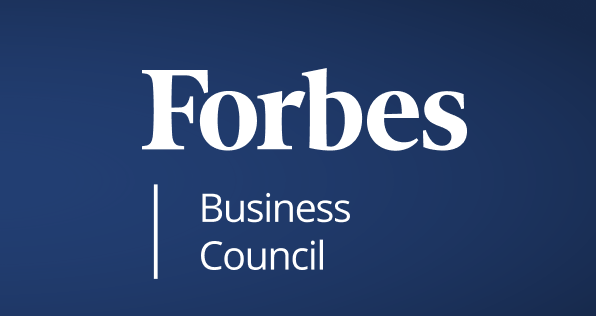Featured on Adweek:
Is your agency ready for a recession?
–Read the published Adweek guide –
Agencies are hardly strangers to volatility. Increasingly late or delayed payments from clients and the unpredictability of project-based work make financial stability a challenge even in the best of times. While there’s no way of knowing what the next 12 months hold for the economy, it’s almost certain that agencies will be feeling the pain as brands batten down the hatches and pull back on advertising and marketing spend. Tough times ahead don’t have to spell disaster. But avoiding it will take vigilant financial planning and uncompromising execution. Every agency executive will have difficult decisions to make. So, we sought advice from experts who work day-in and day-out with agency leaders to ensure they are ready to take advantage of opportunity or weather a crisis.
These are 10 questions you’re probably asking right now.
The answers are meant to provide you with guidance and best
practices. But don’t stop there. Work with your own consultants and
professionals who are familiar with your operations and can give you
actionable advice.
1. My business plan doesn’t account for a crisis or recession. Should I divert from it?
Bruno Gralpois: If you don’t have a crisis contingency built into your business plan, you may have no choice but to divert from the plan at this time, but you should stick to your plan if at all possible. That said, having a contingency plan is a necessity for any business. We are now living with a new level of business vulnerability—not just with today’s evolving recession; we should be planning for future crises as well. I expect most agencies to move very conservatively from a cash flow and investment perspective in the future. Agencies must hold enough cash reserve for emergency situations like this one.
2. How should I manage my cash reserves for a recession?
Bruno Gralpois: Agencies should earmark a percentage of client billings (say 5 to 10%) to fund their emergency cash reserve, until they reach a certain level of comfort, allowing the agency to survive a crisis like this one or even the loss of a large client in normal times without having to cut to the bone. Cost-cutting options must also be considered as part of a contingency plan, i.e., what expenses are deemed “life critical” vs. “important” or “nice to have,” so the agency can still operate at its lowest operational costs.
3. If I don’t have the necessary cash reserves, should I take out a business loan or other line of credit?
Bruno Gralpois: The SBA, as part of the economic stimulus, is offering many loan options including the Paycheck Protection Plan (PPP) loan that agencies should absolutely take advantage of. This is a business environment without precedent. Every agency should have a line of credit in place, event if it wasn’t needed when it was originally set up. It’s a safety net that agencies can’t afford not to have.
4. Should I tap into my line of credit to cover some of my lost business?
Bruno Gralpois: Every source of financing should be on the table. Agencies must make these decisions looking at their debt ratio and revenue projections. Having different forecasts based on confidence level (high to low) or some baseline assumptions allows for the management team to make some informed judgement calls.
5. What income statement indicators do I need to focus on ahead of a recession?
Bruno Gralpois: Cash flow is always key. Accounts receivable, net margin, and debt ratio are also highly relevant metrics, especially in case there is a bump in the road. A seismic business event like a recession will cause lasting damage. Financially weak agencies will not survive. The healthy ones will not only survive but will likely prosper and grow.
6. What tasks should I have my CFO prioritize now, and how often should I meet with him/her?
Bruno Gralpois: Agency leaders and their CFOs should meet weekly to review their cash flow balance, update their forecast, evaluate what progress they’ve made on efficiency measures, and review the status of accounts receivable. Any attempt to speed up receivables, cut or postpone expenses and demonstrate financial resilience should be a priority. The real focus for everyone at the agency should be on driving value which translates into sustainable profit margins and client retention.
7.What alternatives are there to laying off my staff?
Bruno Gralpois: Agencies are naturally exploring every single avenue to avoid letting go of their most valuable asset: their staff. Cost-cutting measures like freezing or postponing new hires. Reviewing and reducing freelance and third-party supplier spend where it makes sense to handle the work internally. Postponing planned salary increases. Salary cuts (base pay and bonuses) are often necessary to buy time and more runway. Furloughs are commonly used to avoid layoffs. The ideal alternative to laying off staff is keeping or adding paying clients that value your work. As an agency, no matter how necessary, it’s dangerous to spend all your energy on expense management or cost cutting. Empower staff to work most effectively from home. Delight existing clients and aggressively pursue new ones.
8. Can/should I start renegotiating things like rent, insurance, health coverage, and other long-term agreements? What is the best strategy to pursue for this kind of cost-cutting?
Bruno Gralpois: All agreements that have a significant level of financial commitment should be revisited. Agencies should proactively review what clauses, if any, give them any leverage. Even in the absence of such terms, it’s advisable to reach out to suppliers and key partners to explore any mutually acceptable compromises to find financially-sound solutions. It’s in everyone’s long-term best interest to see the agency survive and thrive.
9. What should I do if my clients’ payments slow?
Bruno Gralpois: Don’t even wait 24 hours to contact clients if you have reasons to be concerned about payments being delayed. Having clear, documented expectations and an open communication about payment terms is essential. There was a time when agencies didn’t want to come across as “desperate” when reaching out to clients about late payments. That time is gone. In desperate times, we are vigilant. That’s a business mindset. Smart clients understand and respect it.
10. Should we look at the way we bill? As we plan for a recession, should we be doing more project work or retainer work? Is one better than the other?
Bruno Gralpois: Agencies must carefully revisit the way they manage their P&L and billing for clients. Retainer work has always been popular among agencies as it provides more stability than project work. Project work can be more profitable, but operating without a retainer is risky when you can’t see the shore. Why choose, though? A reasonable mix of retainer and project work is ideal.
11. Is it too late to run a sensitivity analysis?
Bruno Gralpois: It’s never too late to conduct analysis on the vitals of the company financials. Evaluating the uncertainty of the output and its sources helps leaders evaluate risks, anticipate issues, and prepare better. It may be too late to act on past data but it’s never too late to prepare for tomorrow and what is still unknown.
12. How should I communicate with my employees about the business’s financial health?
Bruno Gralpois: Transparency, honesty, and proactiveness are the essential blocks of any employee communication. The French like to say that “Bad wine is like bad news. It never ages very well.” Don’t wait to share bad news. Do so empathically. Do it quickly. Show decisiveness and resolve in your actions. Be honest about what you don’t know. And invite others to be part of the solution. #AloneTogether is not just a hashtag, it’s an invitation to take care of oneself while contributing to the community. Your team at work is such a community.
13. What’s the best way to diversify income streams? Which analysis will tell us what to do?
Bruno Gralpois: No single client should be large enough to compromise the health of the agency if they were to move the account or face financial issues. Agencies must look at their client revenue distribution, evaluate the risks with each client situation, and have a robust plan to drive client retention and protect revenue. The plan must be multi-faceted and rigorous. Agencies must also implement organic growth plans to hopefully nurture, strengthen, and grow existing client relationships.
By: Bruno Gralpois, Co-Founder & Principal
5/20/20





